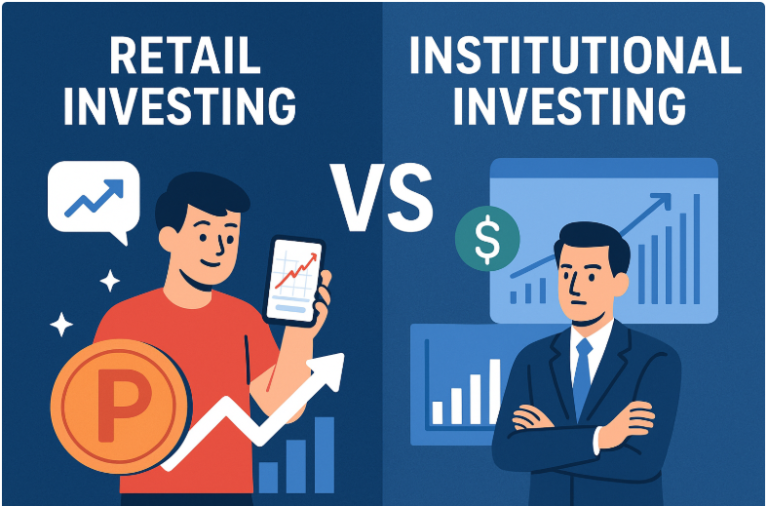Taxation on stock trading in Canada: A comprehensive guide
The Canadian tax system significantly impacts stock trading, as taxes can significantly reduce profits or increase losses. It is vital for Canadians to understand the tax implications of their stock trading activities to maximize profits and minimize tax liabilities.
In this article, we will explore the various types of taxes that may apply to stock trading in Canada, including capital gains tax, dividend tax, and interest income tax. We will also discuss how to calculate capital gains tax and the tax treatment of stock options.
Additionally, we will discuss tax-advantaged accounts such as Registered Retirement Savings Plans (RRSPs), Tax-Free Savings Accounts (TFSAs), and Registered Education Savings Plans (RESPs) that can be used for tax-efficient stock trading.
Types of Taxes on Stock Trading in Canada
There are several types of taxes that may apply to stock trading in Canada. These include:
- Capital gains tax: Capital gains tax is a tax on profits made from selling stocks. The tax rate on capital gains is 50% of the capital gain, which is taxed at the individual’s marginal tax rate. For example, if an individual has a capital gain of $100 and a marginal tax rate of 30%, the capital gains tax would be $15 ($100 x 50% x 30%). However, your tax rate will vary depending on whether you are a day trader or an investor, and what you ultimately pay will depend on your capital gains and your tax bracket.
- Dividend tax: Dividends are payments made by companies to their shareholders. In Canada, dividends received from Canadian companies are taxed as either eligible dividends or non-eligible dividends, depending on the type of corporation that paid the dividend. Eligible dividends are taxed at a lower rate than non-eligible dividends. Dividends received from foreign companies may also be subject to dividend tax in Canada. However, a foreign tax credit may be available to offset the tax paid on these dividends.
- Interest income tax: Interest income is the income earned from investments, including stocks. Interest income is taxed at the individual’s marginal tax rate.
- Foreign tax credit: A foreign tax credit is a credit for taxes paid on foreign investments. This credit can be used to offset taxes owed on foreign dividends or other foreign income.
Calculating Capital Gains Tax
Capital gains tax is a tax on profits made from selling stocks. To calculate the capital gains tax, you will need to determine the cost base of the stocks and the capital gain.
- Determining the cost base: The cost base of stocks is the original purchase price plus any related expenses. For example, if you bought 100 shares of stock for $50 per share and paid $10 in brokerage fees, the cost base would be $5,010 ($50 x 100 + $10).
- Calculating the capital gain: To calculate the capital gain, you will need to subtract the cost base from the selling price. For example, if you sold the same 100 shares of stock for $60 per share, the capital gain would be $990 ($60 x 100 – $5,010).
- Tax rate on capital gains: The tax rate on capital gains is 50% of the capital gain, which is taxed at the individual’s marginal tax rate. Continuing the example above, if the individual has a marginal tax rate of 30%, the capital gains tax would be $148.5 ($990 x 50% x 30%).

The tax structure in Canada for stock traders is as follows:
- Day traders: 100% of profits are considered as “business income.”
- Investors: 50% of capital gain is taxable, while the other 50% is tax-free.
Your tax rate will vary depending on whether you are a day trader or an investor, and what you ultimately pay will depend on your capital gains and your tax bracket.
Dividend Tax in Canada
Dividends are payments made by companies to their shareholders. In Canada, dividends received from Canadian companies are taxed as either eligible dividends or non-eligible dividends, depending on the type of corporation that paid the dividend.
- Eligible dividends: Eligible dividends are taxed at a lower rate than non-eligible dividends. To be classified as an eligible dividend, the dividend must be paid by a “large corporation” as defined by Canadian tax laws.
- Non-eligible dividends: Non-eligible dividends are taxed at the individual’s marginal tax rate.
- Dividends received from foreign companies: Dividends received from foreign companies may also be subject to dividend tax in Canada. However, a foreign tax credit may be available to offset the tax paid on these dividends.
- Dividend tax credit: In addition to the lower tax rate on eligible dividends, a dividend tax credit is also available to individuals who receive dividends from Canadian corporations. The dividend tax credit is a credit for tax paid by the corporation on the dividends. The credit is calculated as a percentage of the amount of dividends received.
Tax Treatment of Stock Options
Stock options are a form of compensation that allows employees to purchase company stock at a predetermined price. In Canada, the tax treatment of stock options depends on whether the options are qualified or non-qualified.
- Qualified stock options: Qualified stock options are options that meet certain criteria set out in Canadian tax laws. The tax treatment of qualified stock options is more favourable than that of non-qualified options.
- Non-qualified stock options: Non-qualified stock options are options that do not meet the criteria for qualified stock options.
- Taxation of stock option benefits: The benefit of exercising stock options is the difference between the fair market value of the stock on the date the options are exercised and the exercise price of the options. For qualified stock options, only 50% of the benefit is taxed at the individual’s marginal tax rate. For non-qualified stock options, the entire benefit is taxed as employment income at the individual’s marginal tax rate.
Example: An individual has non-qualified stock options with an exercise price of $10 and a fair market value of $20 on the date the options are exercised. The benefit of exercising the options is $10 ($20 – $10). If the individual’s marginal tax rate is 30%, the tax on the stock option benefit would be $3 ($10 x 30%).

Tax-Advantaged Accounts for Stock Trading
There are several tax-advantaged accounts available in Canada that can be used for tax-efficient stock trading. These include:
- Registered Retirement Savings Plans (RRSPs): RRSPs are tax-deferred accounts that are used for saving for retirement. Contributions to an RRSP are tax-deductible, and any investment income earned within the RRSP is tax-deferred until the funds are withdrawn. This can be a useful strategy for reducing tax liabilities on stock trading profits.
- Tax-Free Savings Accounts (TFSAs): TFSAs are tax-free accounts that can be used for saving and investing. Any investment income earned within a TFSA is tax-free, regardless of the individual’s marginal tax rate. This can be a useful strategy for maximizing the after-tax return on stock trading profits.
- Registered Education Savings Plans (RESPs): RESPs are tax-deferred accounts that are used for saving for education. Contributions to an RESP are not tax-deductible, but any investment income earned within the RESP is tax-deferred until the funds are withdrawn by the beneficiary for education purposes.
Conclusion
Understanding the Canadian tax system is important for maximizing profits and minimizing tax liabilities when trading stocks.
By understanding the various types of taxes that may apply to stock trading, such as capital gains tax, dividend tax, and interest income tax, as well as the tax treatment of stock options, individuals can make informed decisions about their stock trading activities.
Additionally, using tax-advantaged accounts like RRSPs, TFSAs, and RESPs can help individuals achieve tax-efficient investment strategies.
FAQs
Q. Are dividends taxed differently in Canada depending on the type of corporation that paid them?
A. Yes, dividends received from Canadian corporations are taxed as either eligible dividends or non-eligible dividends depending on the type of corporation that paid the dividend. Eligible dividends are taxed at a lower rate than non-eligible dividends.
Q. Can I withdraw funds from an RESP for any purpose?
A. Funds withdrawn from an RESP for the purpose of funding a beneficiary’s education are called educational assistance payments (EAPs) and are not taxable. However, if the funds are withdrawn for any other purpose, they may be subject to tax.
Q. Is it worth it to check taxes before investing in the stock market?
A. Yes, it can be worth it to check taxes before investing in the stock market, as taxes can significantly impact the profitability of your investments. By understanding the tax implications of your investment strategies, you can make informed decisions about which investments to make and how to structure your portfolio in order to maximize profits and minimize tax liabilities.






